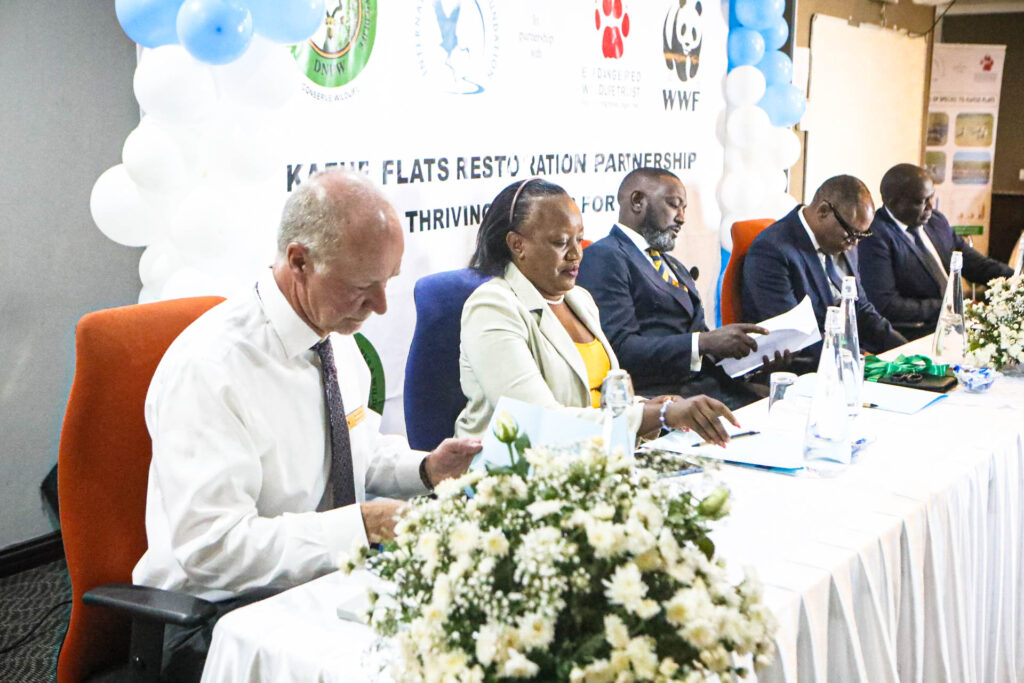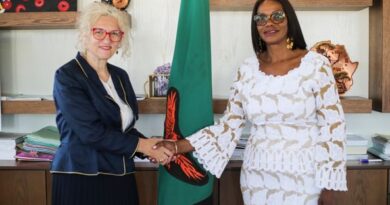Reviving the Kafue Flats: A 20-Year Conservation Commitment Unites WWF, ICF, DNPW, and EWT
WWF Zambia, in collaboration with the International Crane Foundation (ICF), the Endangered Wildlife Trust (EWT), and Zambia’s Department of National Parks & Wildlife (DNPW), has officially launched a 20-year initiative to conserve and restore the Kafue Flats, one of Zambia’s most ecologically significant wetlands.
The project, which is part of a broader 30-year vision, was marked by a milestone event where key stakeholders reaffirmed their dedication to revitalising the Kafue Flats’ rich biodiversity. This wetland, recognised globally as a RAMSAR site, is critical for both wildlife conservation and community livelihood, but has faced significant ecological challenges over the years.
Nalucha Nganga-Ziba, WWF Zambia’s Country Director, highlighted the organisation’s long-standing commitment to the Kafue Flats:
“WWF has been a steward of the Kafue Flats for nearly 60 years. Our dedication began when we, alongside other partners, facilitated the purchase of Lochinvar and donated it to the Zambian government, leading to its declaration as a National Park. Today, we embark on this 30-year journey with renewed strength, aiming to preserve the wetlands’ diverse ecosystems,” she said.
The Kafue Flats is home to abundant bird species and once thrived with populations of herbivores, including the iconic Kafue lechwe. However, the lechwe population has drastically decreased from over 100,000 to fewer than 25,000, prompting urgent conservation efforts.
This decline has had a direct impact on the cultural and ecological values of the wetland, which is why community engagement and the involvement of traditional authorities are crucial to the restoration process.
Honourable Rodney Malindi Sikumba, Zambia’s Minister of Tourism, emphasised the importance of balancing development with environmental protection:
“Harmonising human development with the conservation of the Kafue Flats is crucial. The wetland is not only ecologically important but also recognised as a Man and Biosphere Reserve. The collaboration between stakeholders will ensure long-term sustainable stewardship,” Minister Sikumba noted.
Dr. Rich Beilfuss, CEO of the International Crane Foundation, reiterated the significance of the Kafue Flats to both wildlife and local communities:
“The Kafue Flats is one of the most important wetlands in Zambia, historically supporting vast herds of lechwe alongside the livelihoods, cattle, and agriculture of surrounding communities. Sustainable practices that support both wildlife and human well-being must be prioritised to maintain this balance for future generations,” he said.
The 20-year partnership aims to restore the pride, biodiversity, and sustainability of the Kafue Flats, ensuring that both people and wildlife can thrive together. This long-term commitment promises to be a model of collaborative conservation, blending ecological restoration with sustainable community development.



